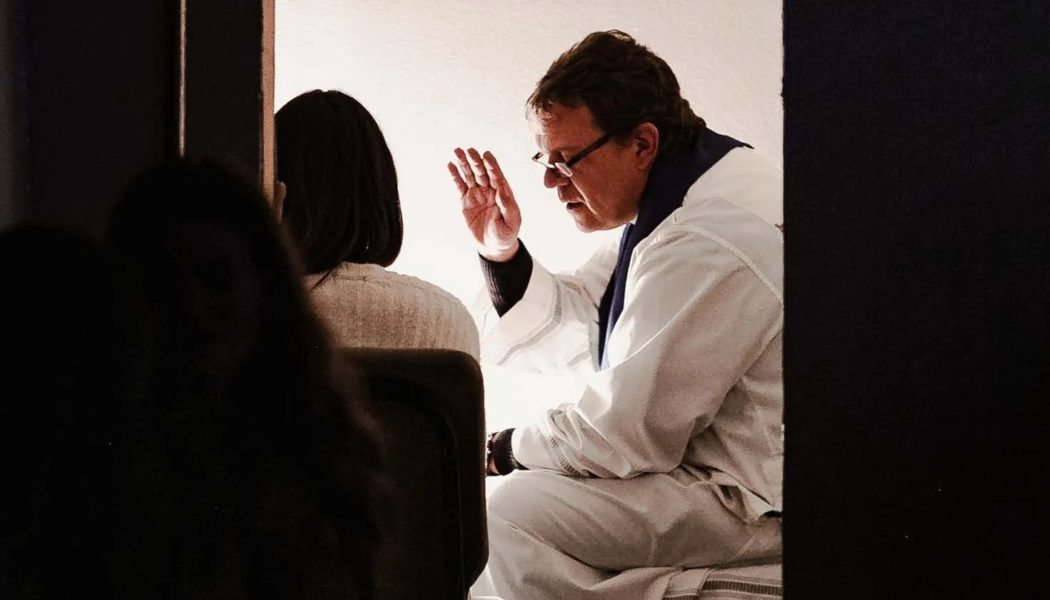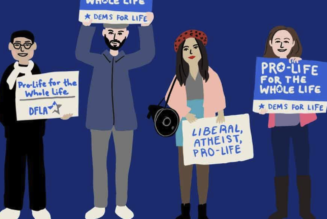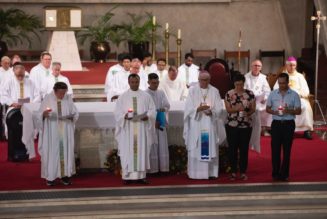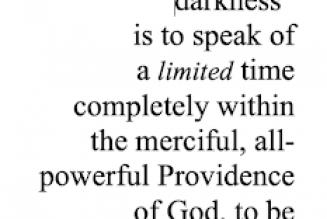
On Easter Sunday II, Divine Mercy Sunday, the risen Jesus shows his wounds to his disciples to show that he is the same Jesus who suffered and died on the cross. Then he breathes on them to give them the ability to forgive sins. And with that, he changes the story of his death from defeat to a new beginning.
St. John Paul II renamed this Sunday “Divine Mercy Sunday” and it couldn’t be more appropriate. We witness this same story unfold each time we go to confession.
The followers of Jesus were filled with horror after his death.
It’s hard to exaggerate how devastating the crucifixion must have been to them. The great Jesus who always outsmarted the religious leaders had been outdone by them at last. He wasn’t just executed; he was mocked and beaten to a pulp, then lifted up on boards so everyone could watch him twist and cry out as he died. The apostles had high hopes from their contact with Jewish officials such as Nicodemus and Romans such as the centurion. Now they had seen for themselves that those were false hopes that came to nothing.
Then, after his death, the horror got worse.
The women had reported that he was no longer in his tomb. Peter and John had seen the empty tomb, too. This could mean a couple of things neither of them was good:
- First, it could mean that Jesus had been taken. If that is what had happened, what would happen next? Would the Romans retaliate? They had already heard the rumors that the guards had been paid off by someone. How long would it be until soldiers would come after them?
- Second, it could mean that Jesus rose from the dead, as the women said. If that had happened, what would Jesus do to them? He would be disappointed and angry. They had failed the big test: They had abandoned him in his hour of need.
They were certainly not expecting Divine Mercy. They had good reason not to.
They had heard the warnings from Jesus: “O faithless generation, how long will I be with you? How long will I endure you?” he had said. He had spoken about tribulations that were imminent. He had said that those who failed to use their talents for him would be bound and hurled into the darkness; that the foolish bridesmaids who hadn’t tended to their oil would be locked out of the kingdom; and that he would separate them into sheep and goats, and send half of them to perdition. Well as Jesus was taken into custody, they had buried their talents, lost their oil, and done nothing for Jesus as he died. Surely this would be the moment the Lord would make good on his promise and treat them as they deserved!
So, a week after Easter Sunday, the disciples had locked themselves away in fear.
We know exactly what it must have been like when they saw Jesus.
“Jesus came and stood in their midst and said to them, ‘Peace be with you,’” says the Gospel.
In the Second Reading, from Revelation, St. John explains what it was like for him to see the risen Jesus. “When I caught sight of him, I fell down at his feet as though dead. He touched me with his right hand and said, ‘Do not be afraid.’”
It was an overwhelming experience to see Jesus risen from the dead. Thomas, later in Sunday’s Gospel, is overwhelmed by it, crying out spontaneously: “My Lord and my God!” When Jesus appeared to his disciples, we’re told only that they “rejoiced” — but we can imagine how intense it was.
Then Jesus showed them the wounds in his hands and side, the wounds which healed their sins. He said, “As the Father sent me, so I send you,” and breathing on them proclaimed, “Receive the Holy Spirit. Whose sins you forgive are forgiven them, and whose sins you retain are retained.”
This is the institution of the sacrament of confession, and just as we can see the Last Supper at each Mass, we see a bit of this institution narrative in each confession.
It’s no accident that confessionals are like the little room that the apostles locked themselves in. And it’s no accident that we approach each confession a little like the disciples approached Jesus.
We are terrified.
We have sinned against Jesus. We have taken the good things he gave us and spent them on ourselves or on the devil. We have taken his talents and either buried them or used them against him. We snuffed out our oil lamps and ignored our neighbors. Instead of carrying our cross and following him, we have used our lives to fashion a cross that we crucified him on.
We know who we face in the confessional: The Jesus who bears the wounds of the sins we gave him. Jesus with hands and feet pierced by the sins of ours that pinned him down, unable to act; the heartbroken Jesus whose side we pierced with our anger, lust, pride and greed. We are horrified at what we have done, and when we are sorry for our sins, we feel like we deserve only his disgust and destruction.
But what happens in the confessional? He allowed us to break his heart so that he could nourish us with his blood and water. He didn’t lose the wounds we made, but his wounds lost their power to harm him. Instead they become the channels of the graces he wants to give us.
The very sins that destroyed him he now uses to restore us.
In fact, is forgiveness of our sins become our way into the life of the Trinity.
In heaven, the Three Persons of the Trinity are devoted to each other in love. The Father gives all to the Son, the Son gives all back to the Father, and the Holy Spirit is the love between them.
That Holy Spirit is now breathed on the apostles, given to them to be given to us.
“The Apostle’s Creed associates faith in the forgiveness of sins not only with faith in the Holy Spirit, but also with faith in the Church and in the communion of saints,” says the Catechism. “It was when he gave the Holy Spirit to his apostles that the risen Christ conferred on them his own divine power to forgive sins.”
In the confessional, we are united to Jesus and incorporated into the body of Christ, the Church, by the power of the Spirit for the glory of the Father.
And what happens next? We see it in the First Reading, from the Acts of the Apostles.
The same apostles who were terrified and locked away are now doing “many signs and wonders” and “great numbers of men were added to them.” People went to them “bringing the sick and those disturbed by unclean spirits, and they were all cured.” The very sinners who betrayed Christ and feared the world’s reaction now bring Christ to the nations, heedless of what the opposition.
Their experience of Divine Mercy meant that they were committed to Acts of Mercy. Ours has to mean the same.
We who have been freed of the burden of our sin should look out on the world and see not enemies to be picked off in a culture war, but lost and hurting people who need to be served and healed and helped.
Divine Mercy Sunday isn’t the day Jesus shrugs off sin; it’s the day his wounds show the heavy price he paid for sin.
Divine Mercy Sunday isn’t the day we learn that sinning is no big deal; it’s the day we learn that with the grace of God we can finally stop sinning.
And Divine Mercy Sunday isn’t the day Jesus saves each individual; it’s the day he incorporates us into his body so that we can help him save the whole world.
It’s the day Jesus turns our horror into hope.
Join Our Telegram Group : Salvation & Prosperity








